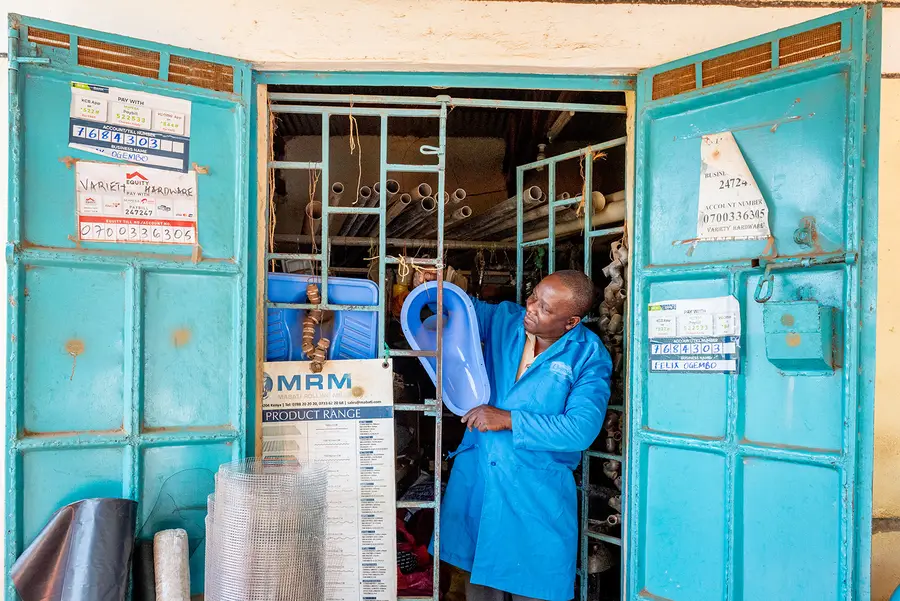
Photo by Marian Siljeholm/USAID Western Kenya Sanitation Project
Water, sanitation, and waste management are interconnected components of public health and environmental sustainability. Addressing one area often involves considering others. For instance, water shortages influence waste management practices and challenge sanitation efforts. Conversely, inadequate solid waste management (SWM) practices can compromise water quality and sanitation and increase plastic pollution in the ocean, which already accounts for 80% of marine debris.
To address these complex issues, we need innovative integrated and sustainable approaches that help countries and communities overcome these challenges and protect water – for human life and well-being, wildlife biodiversity, ocean health, and more. The private sector is critical for innovating and scaling sustainable solutions to those most in need.
Insights from our experts: Private sector's role in sustainable water, sanitation & waste management solutions
RTI is exploring a variety of new approaches to ensure the private sector is part of solutions to improve access to clean water and improved sanitation, strengthen SWM, and reduce ocean plastic pollution. This fall, our experts gathered to exchange best practices, discuss larger trends, and challenge each other to go further in this space.
Here’s what some of these experts had to say on the current state and future potential of private sector participation and engagement in solving these pressing challenges.

“Enhancing private sector engagement can significantly contribute to improving the financing and management of water supplies and sanitation. The water, sanitation, and hygiene (WASH) sector must undertake region-specific assessments and map private players as a first step toward building responsive partnerships between private sector entities and WASH service providers. WASH stakeholders must further support and facilitate stronger and more direct dialogue, deliberation, and information exchange between governments, service providers, and private sector actors – including operators, suppliers, investors, and other enterprises – to realize the full benefits of increased private sector participation in the sector.”

“Private sector involvement in solid waste management (SWM) demonstrates a paradigm shift in the way developing countries approach this issue. Governments and NGOs were the dominant force in SWM programming in past decades, with very few examples of private sector leadership. The current emphasis on private sector engagement bodes well for increasing financially viable, market-based, locally owned solutions for SWM. Further, the private sector brings an important set of skills in innovation, business planning, operational management, as well as marketing, which has been a missing piece of the puzzle in addressing SWM issues.”

“Building sustainable WASH requires a triple action approach: creating an enabling environment, building intentional partnerships across levels, and deliberate private sector participation. With many regional conflicts, global economic recession, climate change, and other factors impacting WASH service delivery, a market-based approach to WASH sector development is the only viable way to create sustainable, replicable, and scalable markets. This can only be driven through sufficient private sector participation and ownership, which, for WASH, entails deliberately mobilizing nascent local entrepreneurs as well as high-volume enterprises to create market demand and supply forces for WASH goods and services.”

“In developing countries, including those in Africa, water and sanitation are often seen as being public goods and services provided by governments, NGOs, and civil society. However, we are witnessing a new era of WASH services and products provided by local private sector actors such as franchises and retail outlets producing, manufacturing, and selling sanitary pads and outlets and kiosks providing water. In addition, the expansion of renewable energy and climate adaptation technologies has introduced new solar energy solutions that provide cost effective and environmentally friendly ways of generating water that doesn’t rely on fossil fuels like diesel. The private sector is the lead actor at this nexus of energy, water, and climate innovation.”
Learn more about RTI’s work in water, sanitation, and hygiene (WASH).
